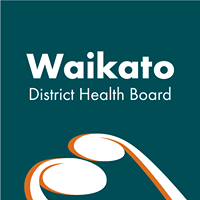Waikato DHB today published its Equity Report, Rapua Te Ara Matua, which provides a clear view of the inequities experienced by Māori and Pacific peoples and illustrates the long-term impact they can have on individuals and whānau.
Chief executive, Dr Kevin Snee, says the DHB has made equity a priority and the report confirms how urgent it is to make real progress.
“We acknowledge that there are numerous factors which contribute to inequities, including many which are outside the health sector, but as a DHB we do have considerable means to drive change and there are examples presented in this report to show where deliberate and targeted actions have been effective. We have committed to taking action in those areas for which we have oversight and are asking our partners and those across all sectors to work with us.”
Executive director Māori, equity and health improvement, Riki Nia Nia, says in many cases the trends are positive, but even where health outcomes are improving for all there remains a persistent gap between Māori and non-Māori.
“Something this report does well is to illustrate the impact of health inequities. Behind each set of figures or spike in a graph there are individuals and whānau who experience hardship and loss, of opportunities to live a full life, or the loss of life or loved ones to causes which may have been preventable.
“For some these figures may be quite confronting, but the reality is that for many people these inequities are well known and long-standing.”
Following the release of this report, the DHB is completing an equity action plan which will be reported against on a quarterly basis.
Mr Nia Nia says progress has been made in building partnerships with iwi, Māori providers and others in the community, and shifting to a localities approach in which communities are asked to help shape local services.
“This does reflect a significant change in our approach, with a view that services should be built around people rather than the other way around.
“It is clear that meaningful change will require everyone working together. Our hope is this report will encourage greater support and urgency to address inequities and that there is no tolerance for these persistent gaps between people living together in our communities.”



 Gordon Campbell: On The History Of Doo Wop Music
Gordon Campbell: On The History Of Doo Wop Music Wellington City Council: 'I Am Focused On Continuing The Momentum' – Mayor Tory Whanau
Wellington City Council: 'I Am Focused On Continuing The Momentum' – Mayor Tory Whanau Love Food Hate Waste: From Overbuying To Overcooking - Food Waste Challenges Impacting Smaller Households
Love Food Hate Waste: From Overbuying To Overcooking - Food Waste Challenges Impacting Smaller Households NZ Government: Strong Biosecurity More Important Than Ever
NZ Government: Strong Biosecurity More Important Than Ever Environmental Defence Society: Regulatory Standards Bill Should Be Stopped In Its Tracks
Environmental Defence Society: Regulatory Standards Bill Should Be Stopped In Its Tracks NZ Police: A Minute's Silence And Livestream Of Funeral Service For Senior Sergeant Lyn Fleming
NZ Police: A Minute's Silence And Livestream Of Funeral Service For Senior Sergeant Lyn Fleming Socialist Equality Group: Foreign Interference Bill Prepares New Attacks On Democratic Rights
Socialist Equality Group: Foreign Interference Bill Prepares New Attacks On Democratic Rights


